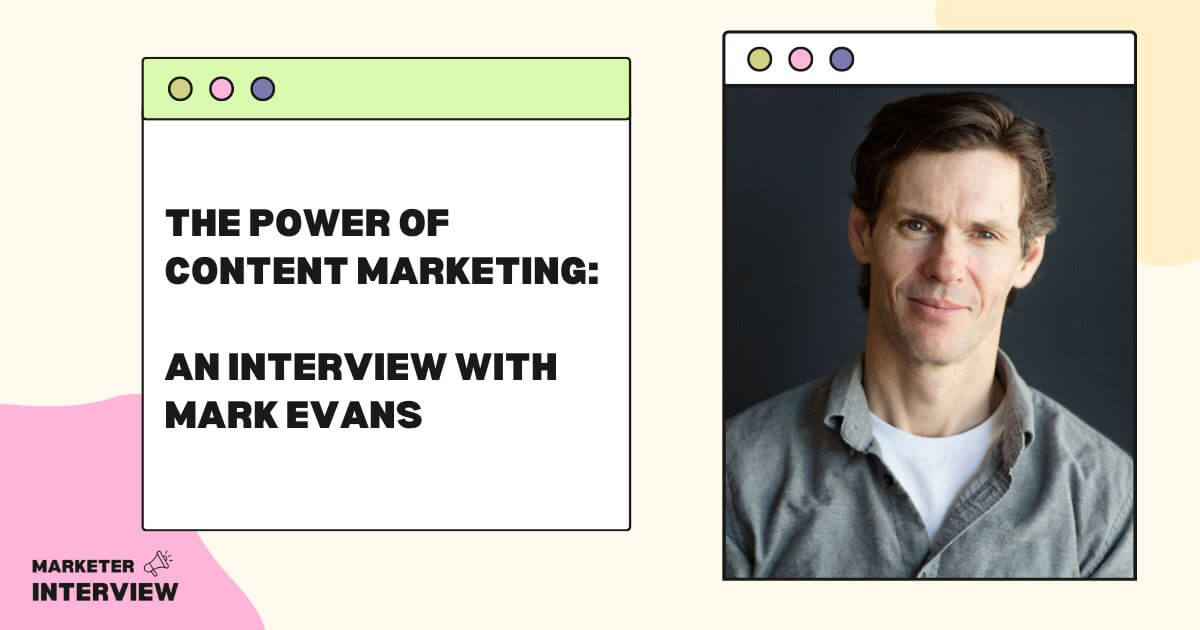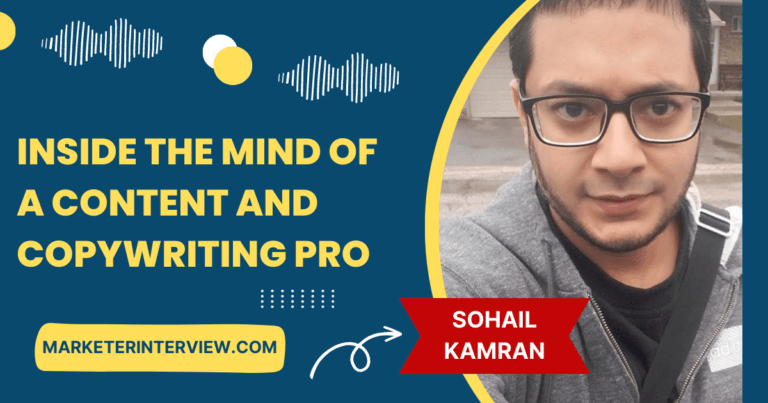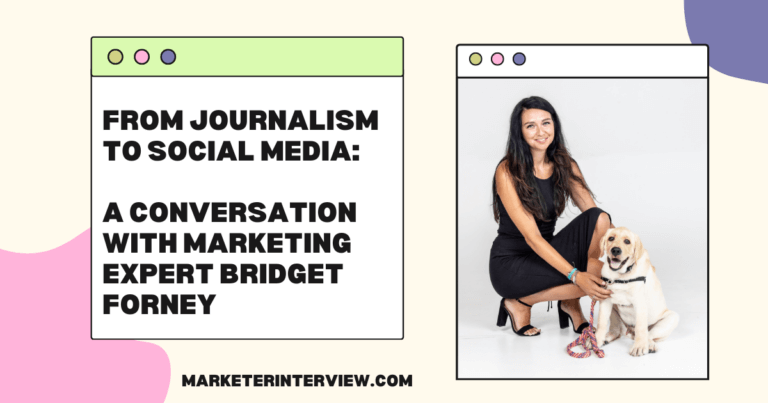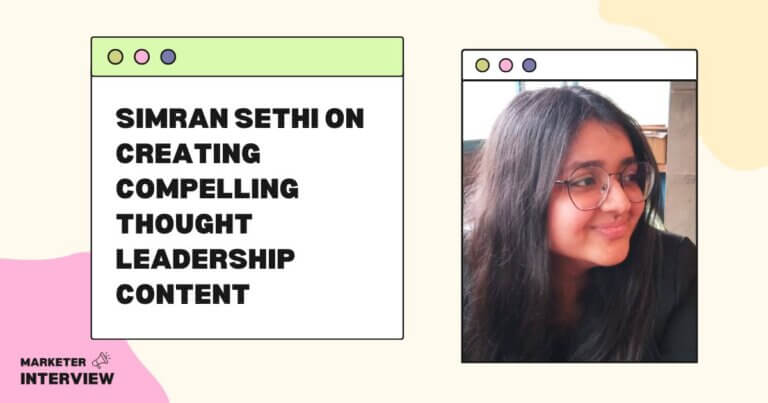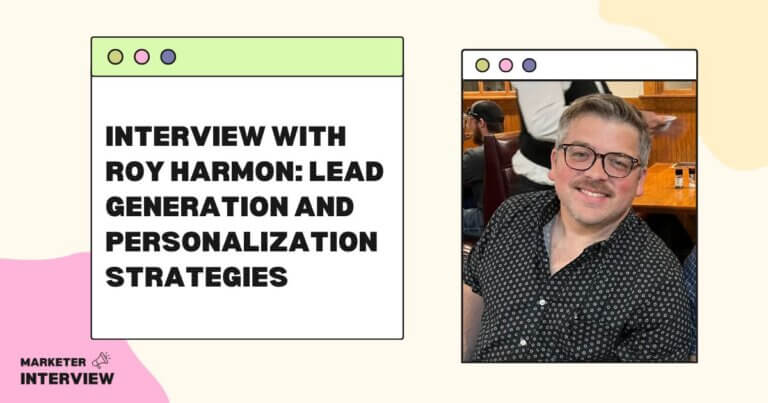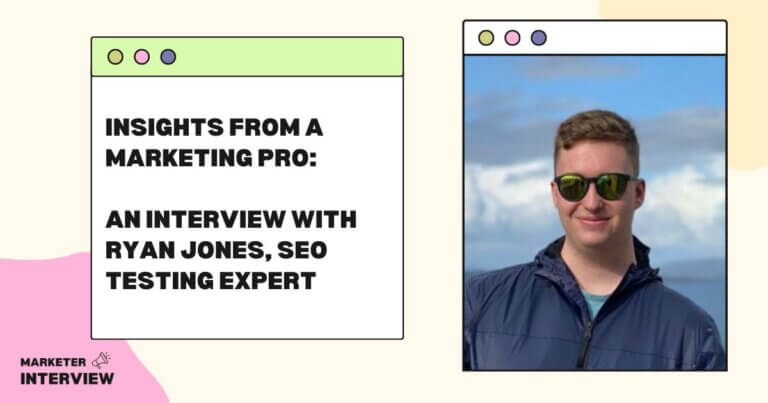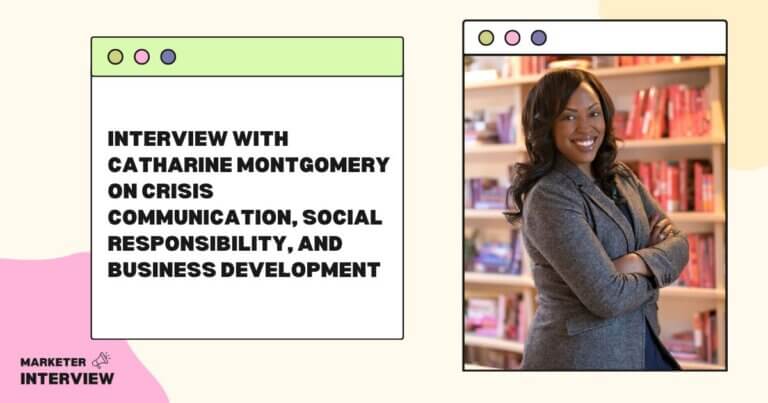The Power of Content Marketing: An Interview with Mark Evans
Welcome to Marketer Interview, where we delve into the minds of exceptional marketers who have shaped the industry with their expertise.
In this edition, we are privileged to interview Mark Evans, Principal at Marketing Spark. With a deep understanding of content marketing, brand positioning, customer marketing, and the rise of the fractional CMO, Mark has established himself as a trusted authority in the field.
As an experienced marketer, Mark specializes in helping companies struggling to make their marketing efforts effective.
Mark’s strategic guidance and expertise in messaging, brand storytelling, and go-to-market plans have attracted and engaged the best prospects for companies of all sizes.
Let’s explore the fascinating world of content marketing, brand positioning, and customer marketing with the brilliant mind of Mark Evans.
Contents
- 1 Could you share your journey of getting into the marketing field?
- 2 What are the critical elements of an effective brand positioning strategy, and how can companies differentiate themselves in a crowded market?
- 3 As the author of the book “Marketing Spark,” what are some key takeaways or strategies you emphasize to help struggling companies make their marketing efforts successful?
- 4 How do you approach customer marketing, and what strategies have you found most effective in engaging and retaining customers?
- 5 Can you explain the concept of the fractional CMO and how it has risen in prominence?
- 6 What emerging trends or strategies do you believe will shape the future of content marketing?
- 7 What tools or software do you use to enhance your marketing efforts and help your clients achieve their goals?
- 8 Can you share a memorable success story where your brand positioning and messaging strategies helped a struggling company transform its marketing and achieve remarkable results?
I started as a newspaper journalist with two of Canada’s largest newspapers.
At the height of the original dot-com boom, a friend recruited me (seduced!) to co-found a SaaS startup. That was the beginning of my entrepreneurial journey.
In 2008, I launched my marketing consulting business after getting laid off by a travel startup backed, in part, by Microsoft.
What are the critical elements of an effective brand positioning strategy, and how can companies differentiate themselves in a crowded market?
The key is differentiation and rallying around the strengths of your product or service and aligning those strengths to what customers want.
The keys to successful positioning are:
- A deep understanding of your customers: their pains, frustration, aspirations, goals, and how they do their jobs. It’s about being empathetic.
- The competition to gain insight into their strengths and weaknesses and how they position themselves as unique, better, or different.
- An honest and in-depth look at your product or service, its strengths and weaknesses, how customers use it, and features they love.
- Crafting a strategic narrative, value propositioning, and brand positioning statement that tells the world what you do, who you serve, why what you do matters to customers, and how you’re unique, different, or better.
#1 is your dance where the party is happening. In other words, focus your marketing on the places and channels customers use to research buying decisions.
Many companies do the marketing that every other company does rather than carving out their strategy path.
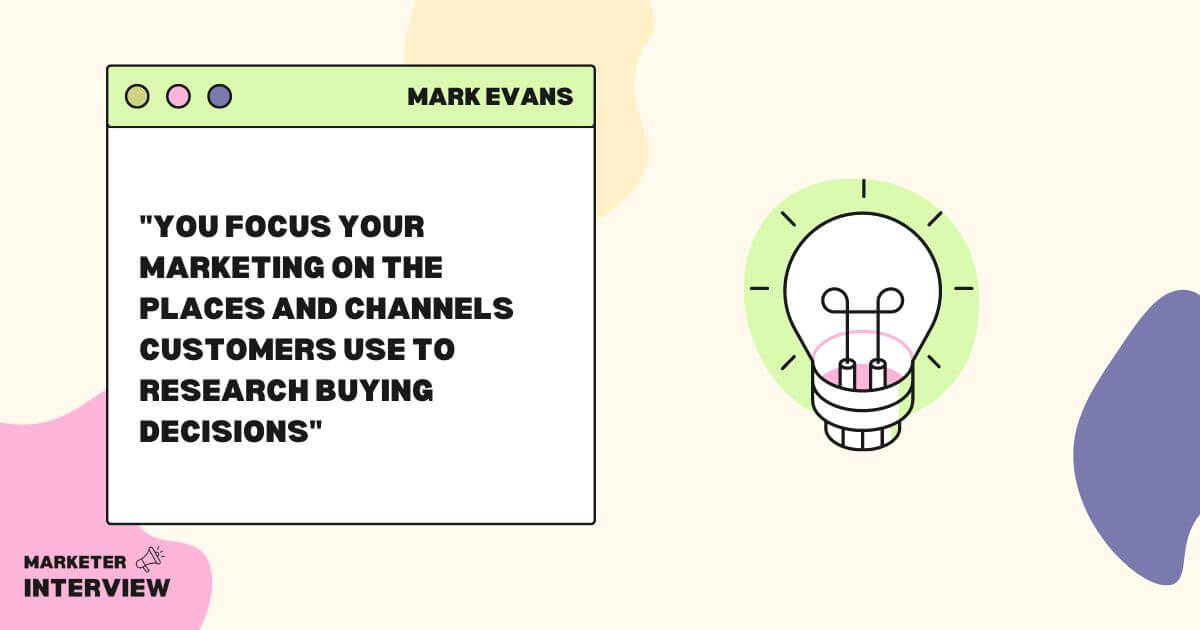
How do you approach customer marketing, and what strategies have you found most effective in engaging and retaining customers?
Engagement and education are a one-two punch.
The bar is pretty low because most companies do, at best, a monthly newsletter, which is usually focused on product updates.
Customer marketing is about helping customers get more value from your product and providing insight into how their jobs and worlds can be better, more accessible, and more profitable. And you do that regularly to show that you value their business and want to be a partner rather than simply a vendor.
Can you explain the concept of the fractional CMO and how it has risen in prominence?
In theory, a fractional CMO is a part-time CMO. You get their expertise and experience but don’t have to pay full freight.
I’ve become less convinced that the model works because marketing (even at small companies) involves many moving parts and stakeholders. It can be challenging to be fractional when there’s a need to be engaged, active, and involved.
What emerging trends or strategies do you believe will shape the future of content marketing?
I love the quote from Rand Fiskin, who said that content that isn’t as good as ChatGPT isn’t worth publishing.
ChatGPT has raised the bar for content. It needs to be insightful, prescriptive, and have a point of value to capture the spotlight.
The best content reflects a customer’s needs, interests, and questions, which goes back to having in-depth information about your customers.
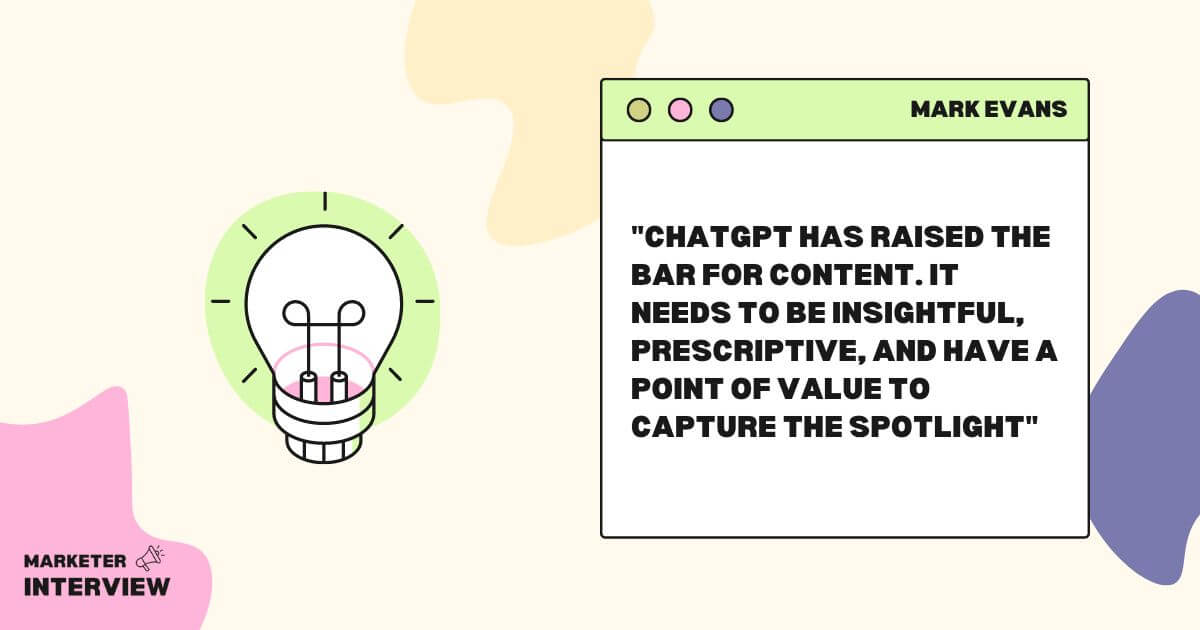
What tools or software do you use to enhance your marketing efforts and help your clients achieve their goals?
WordPress, although Webflow is becoming a viable option
HubSpot for CRM and email marketing
Descript for video and podcasting editing
WordTune for content production.
PodSqueeze for podcast assets (show notes, tweets, etc.)
I worked with an enterprise SEO company doing well but didn’t have a different story.
Its positioning and message were generic and didn’t allow it to stand out from two more prominent competitors. We did an in-depth positioning exercise that involved talking to key stakeholders, customers, and competitive research and landed upon a simple but unique positioning direction: Speed.
It came together because it took the time and effort to put the different pieces of the puzzle together.
